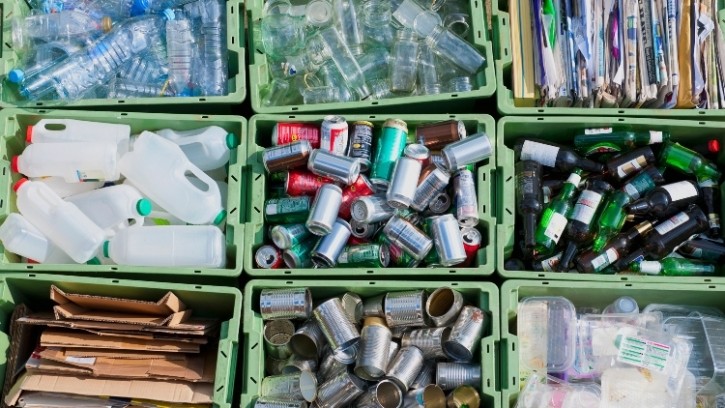Trade bodies welcome DRS delay to October 2027

Additionally, trade bodies in the hospitality sector have called for the disparate schemes in each of country of the UK to be brought together and be introduced with the same rules across each nation.
UKHospitality (UKH), which has representation in England, Scotland and Wales, welcomed the scheme’s delay that was set to come into force in October 2025.
Pubs and bars can opt in to act as a point of return for recyclable packing of alcohol packaging but being on a voluntary basis has been seen as a victory for the sector.
UKH chief executive Kate Nicholls said: “I’m pleased all governments across the UK have listened to the concerns of UKH and will be pursuing schemes that ensure maximum alignment and interoperability across the UK.
“The collaboration between governments to reach this point has been positive to see and should act as a blueprint of how to work together on other common areas of concern.
“We support the delay until 2027 and it is recognition of the significant amount of work that still needs to take place to make these schemes work.
“I’m delighted to see this new phase begin with changes that are good for hospitality businesses, most notably not requiring hospitality venues to host a return point. This was a key ask of UKH and such an approach will avoid unnecessary complexity and cost for businesses.
“Hospitality already has one of the best recycling records in the economy and we can do even more, so I hope all governments across the UK will continue to work with us to make these schemes work for businesses, consumers and all of our sustainability objectives.”
One scheme with same rules
UKH Scotland executive director Leon Thompson said: “This announcement is a clear signal the Scottish government has listened to our concerns and learnt lessons from its previous attempts to introduce a DRS.
“Scottish hospitality businesses understood how costly and challenging it would be to act as return points and I’m pleased that this has moved to businesses being able to opt-in, rather than being forced to take back drinks containers.”
David Chapman, executive director of UKHospitality Cymru, said: “We’ve argued consistently for alignment for the DRS and we’re pleased that Welsh Government has listened to us and reacted positively.
“It remains the case that Wales will be an outlier in some aspects but the inclusion of glass is less of a concern now that hospitality venues are not required to act as return points. However, it would still be preferable to have a UK-wide consensus on the scope of materials.”
The Society of Independent Brewers & Associates (SIBA) chair Richard Naisby added: “To make the DRS work for small independent breweries and consumers, we need one scheme that is introduced with the same materials, the same rules and on the same day across the UK.
“While much progress has been made across the four nations to align the schemes, including a de minimis for low-volume products, this announcement means small businesses in Wales will be penalised by the political failure to agree the same materials, with Wales the only nation to include glass. This will create barriers for small breweries to trade, increase costs and reduce the choice and availability of independent beer.”
Cost impact for consumers
British Beer & Pub Association (BBPA) chief executive Emma McClarkin said the beer and pub sector has ambitious net zero targets and its members are committed to a circular economy in relation to packaging and collaborative working.
She welcomed the clarity provided in the announcement, the steps to closer align national schemes and the recognition that October 2025 is now an unrealistic target for DRS implementation.
She added: “However, continued differences across the UK remains a huge challenge for industry, particularly in terms of glass inclusion, adding in significant additional costs and complexity, which inevitably will impact consumers in terms of costs and choice.
“Fully aligned schemes across the UK are vital as is the need for the UK Government and devolved nations to clearly set out the cumulative costs of all the upcoming packaging reforms, and how these will deliver against environmental objectives in the most cost-effective and proportionate manner.”
Meanwhile, the Night-Time Industries Association (NTIA) CEO Michael Kill explained the delay underscores the necessity for further consultation on its the scheme’s nuances.
He added: “Alignment across the UK is crucial, with consistent rules and materials adopted simultaneously. The disparity in materials, exemplified by Wales’s inclusion of glass, presents a significant challenge, penalising small businesses and potentially impacting, disrupting or placing businesses at a trading disadvantage.”
The Campaign for Real Ale’s (CAMRA) chief executive Tom Stainer said the collective UK governments working together is “good news for the environment and for consumer choice”.
He continued: “Having four different schemes with different rules, paperwork and labelling needed for each nation risked a catastrophic reduction in choice for consumers of quality beer and cider from small and independent businesses who wouldn’t be able to take part in four different systems and produce four different sets of labels for each beer or cider they make.”







